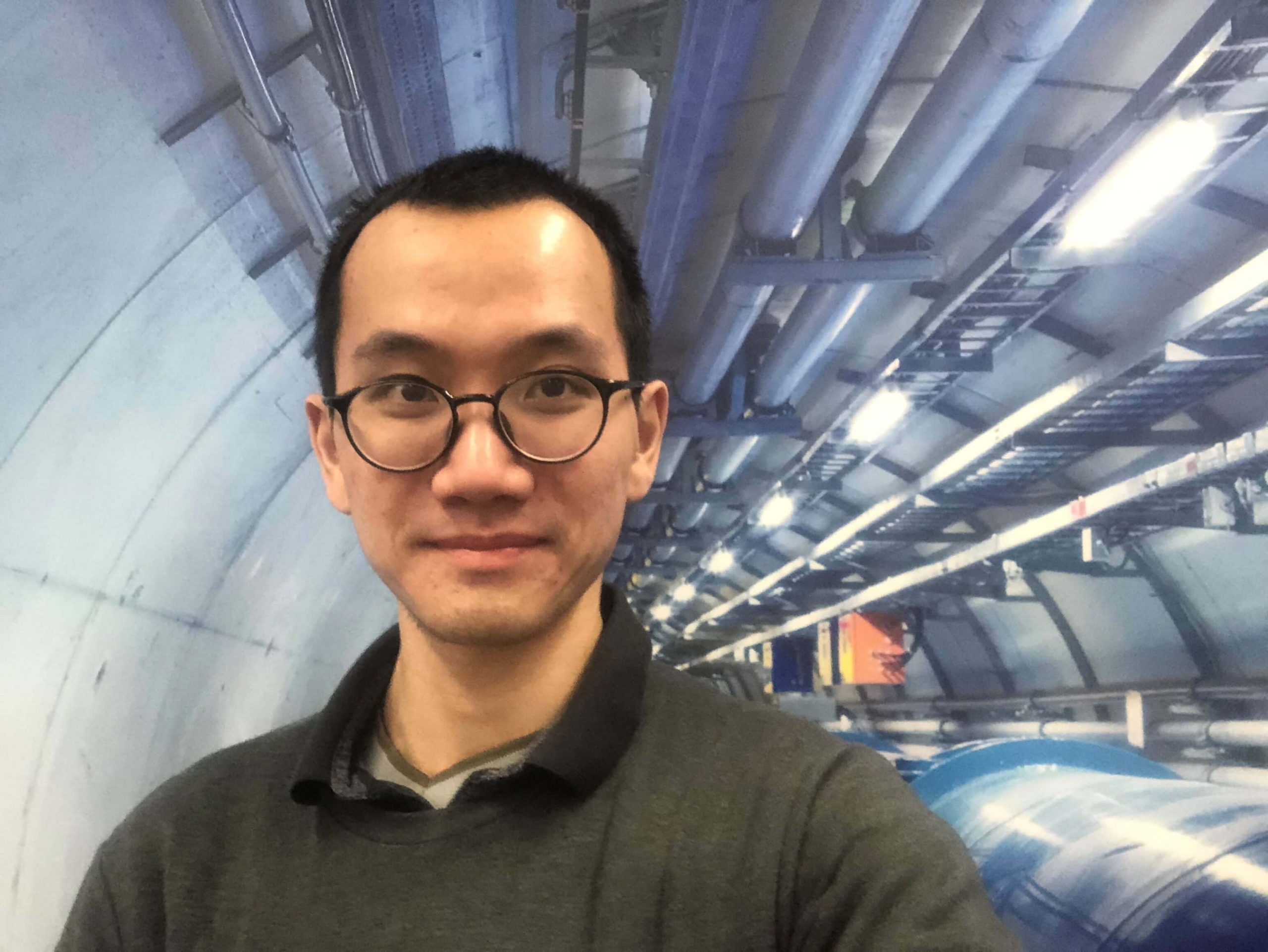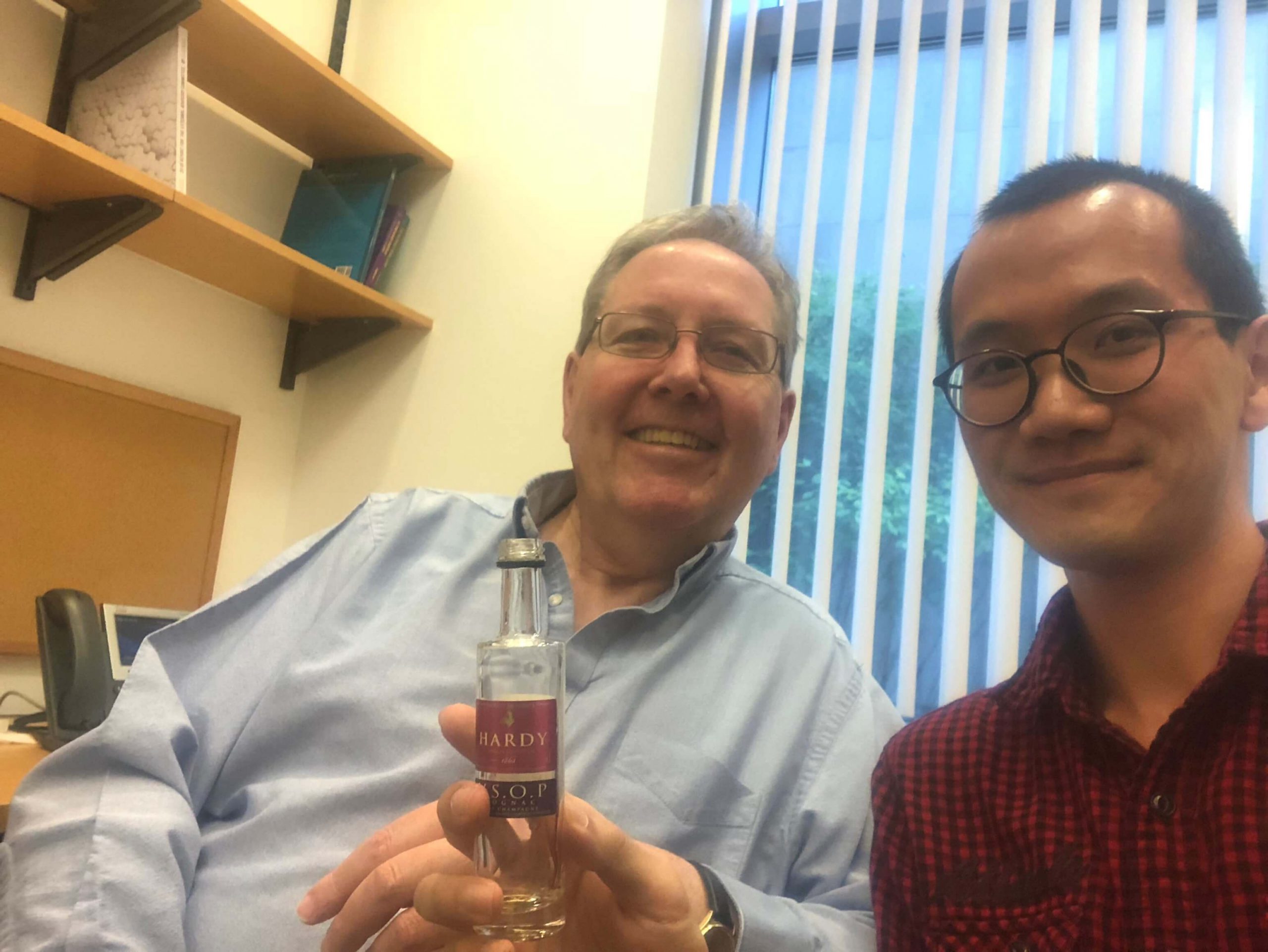Our Alumnus Speaks…
Mr Daniel Tay [BSc (Hons) 2018] is currently pursuing his PhD at the Swiss Federal Institute of Technology or ETH, Zurich. He is also the co-founder of Nemosia, a biotech startup working on Positron Emission Tomography tracers.


Share with us your academic pursuit and any piece of advice for our undergraduates.
My journey as an undergraduate was quite straightforward: I was heavily involved in research at the pre-university level (Science Mentorship Programme, Singapore Science & Engineering Fair, etc), so it was a natural choice for me to continue pursuing research at the undergraduate level in one of the best research universities in Asia: NUS. For further studies, it was again natural for me to pursue research at the masters level in one of the best research universities in America: the University of Chicago. Last but not least, for my PhD which I am pursuing presently, I took up an offer to conduct research at one of the best research universities in Europe: ETH Zurich.
It is common in alumni interviews to talk about how a physics education has shaped students. I would like to share an alternative perspective: It is possible for students to shape their physics education at NUS by choosing modules and taking up opportunities in accordance to their own needs and interests. I would like to encourage our current physics undergraduates to play a proactive role in formulating their own personal plan and taking full advantage of the numerous resources available to them in NUS.
What is your present PhD research? How is it related to your start-up venture?
My current research at ETH Zurich is in the area of Dynamics of Strongly Correlated Systems Group (dscm.ethz.ch). It is widely known that Albert Einstein graduated from ETH Zurich, but not many in the physics community are aware that ETH Zurich also has a strong historical tradition in experimental condensed matter physics, including but not limited to research on the specific heat of solids (Heinrich Friedrich Weber 1875 – 1912), ferromagnetism (Pierre Weiss 1902 – 1919) and dielectrics (Peter Debye 1920 – 1927). My current research focuses on local probe techniques (Nuclear Magnetic Resonance and Muon Spin Resonance) to study correlated electron systems such as Weyl semimetals and unconventional superconductors.
I am also the co-founder of Nemosia, a biotech startup working on Positron Emission Tomography (PET) tracers for use in the early diagnosis of Alzheimer’s disease, multiple sclerosis and other neurodegenerative diseases. This may sound very different from my PhD topic, but both Nemosia and my PhD are variations of the same fundamental philosophy: Leveraging on modern imaging techniques (neutrons, muons, positrons) to gather new insights in complicated systems (human nervous system and correlated electron systems).
In both my PhD and in Nemosia, the main technical challenge is to try to get as much insight as possible from the analysis of imperfect underlying data. To confirm that our proposed PET tracer is indeed able to image neurodegenerative diseases, we will be starting human clinical trials in partnership with collaborators at Yale and Harvard Medical School. We also have clinical trials of a related tracer currently ongoing in Vienna.
What inspires you moving forward despite the global downturn or what opportunities do you see lying ahead?
Good ideas are recession-proof. The rule of thumb I like to follow is based on entrepreneur Peter Thiel’s 10x rule: A good idea should show 10 times performance improvement over the closest substitute, which is a margin large enough to overcome the effects of global downturn and other random market fluctuations. In the case of Nemosia, there are no competing tracers which can provide early diagnosis of neurodegeneration, so we are not at all concerned about the current global downturn.
Looking ahead to the future, as the pandemic turns the corner in light of the rapid deployment of vaccines, I believe that the most promising opportunities lie in trying to solve the underlying structural problems that are laid bare by the pandemic. It is well known that the pandemic strikes most severely among the most medically vulnerable people in society: the elderly and people with underlying medical conditions. Neurodegeneration is one example of an underlying condition which is especially prevalent among the elderly. Hence, I firmly believe that an early diagnosis of neurodegeneration is the missing piece that would help to address many of the vulnerabilities inherent in ageing societies. I hope that in the future, regular PET scans to check for early signs of neurodegeneration will be considered a routine procedure just like blood and urine tests.
For more on Nemosia, click Nemosia.com
